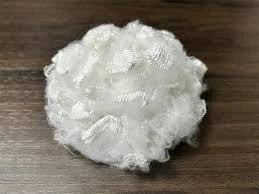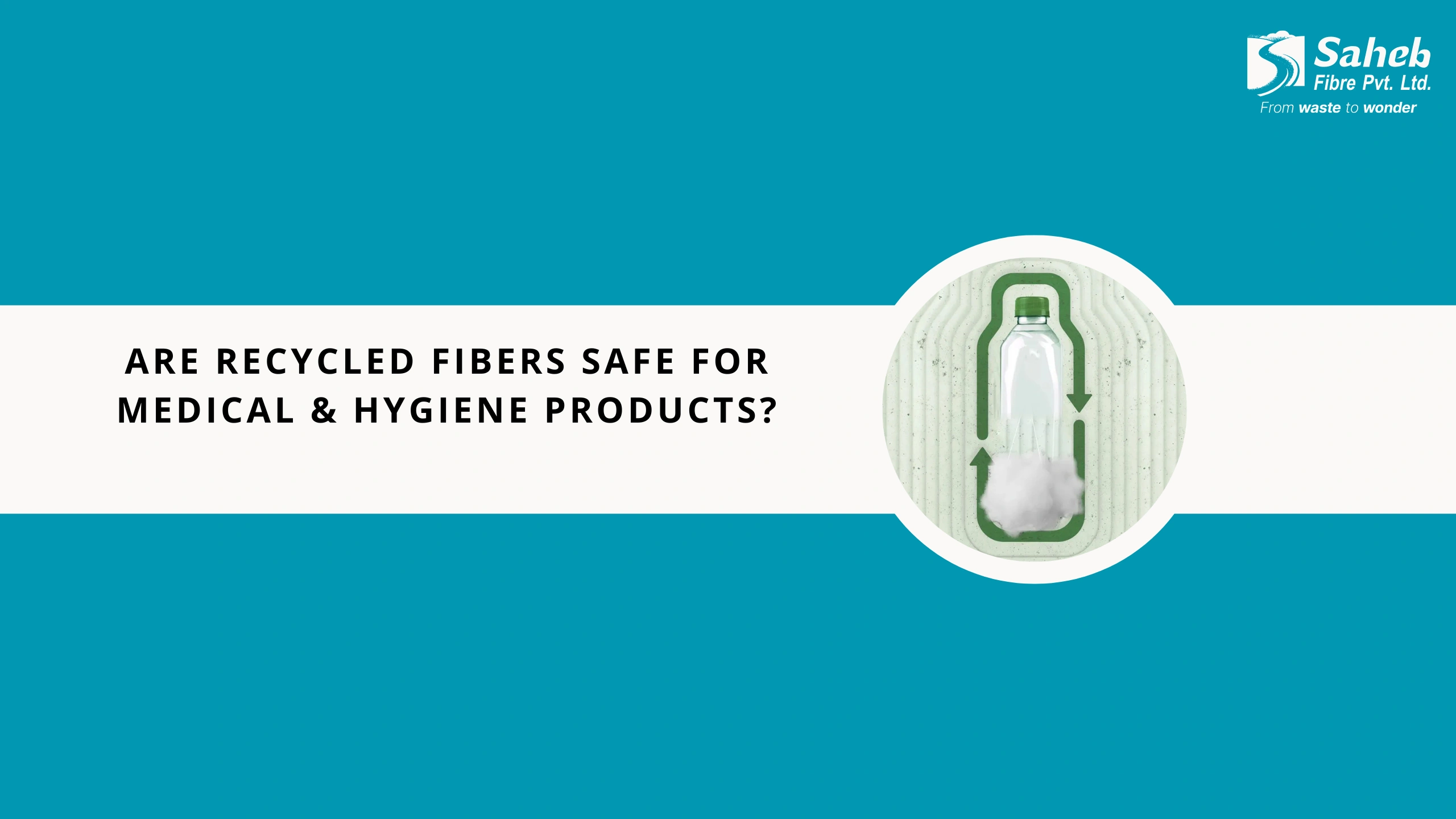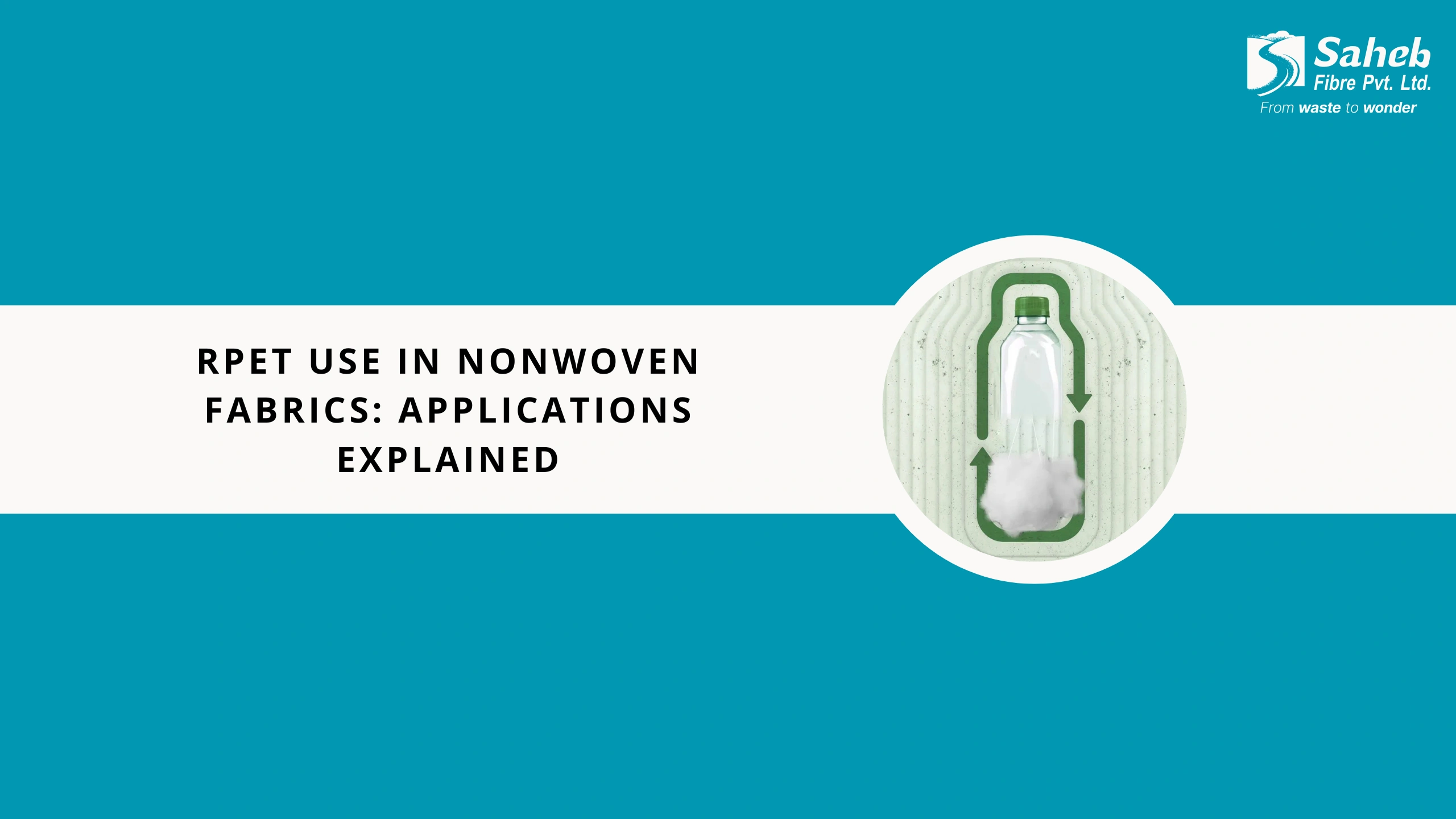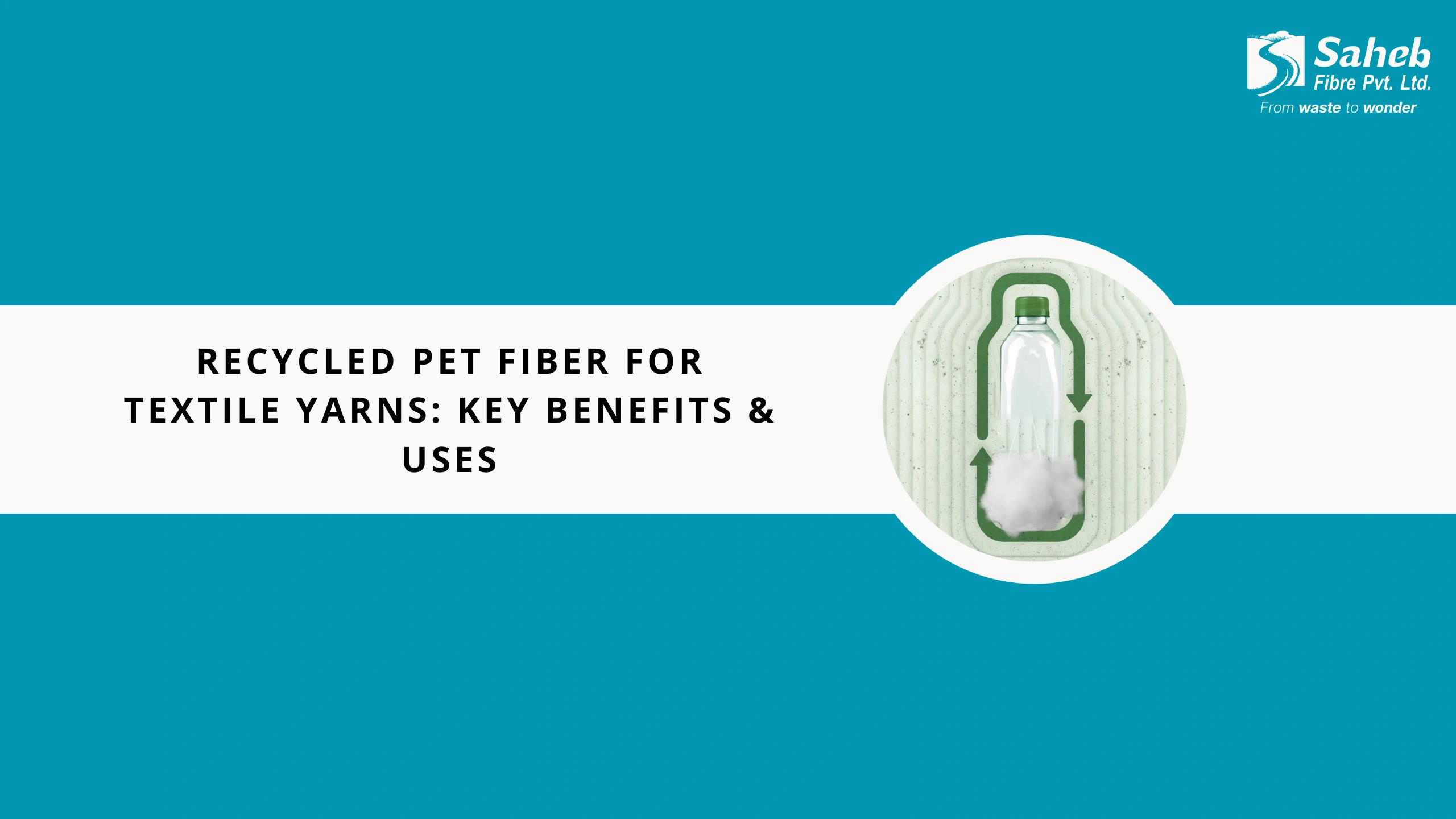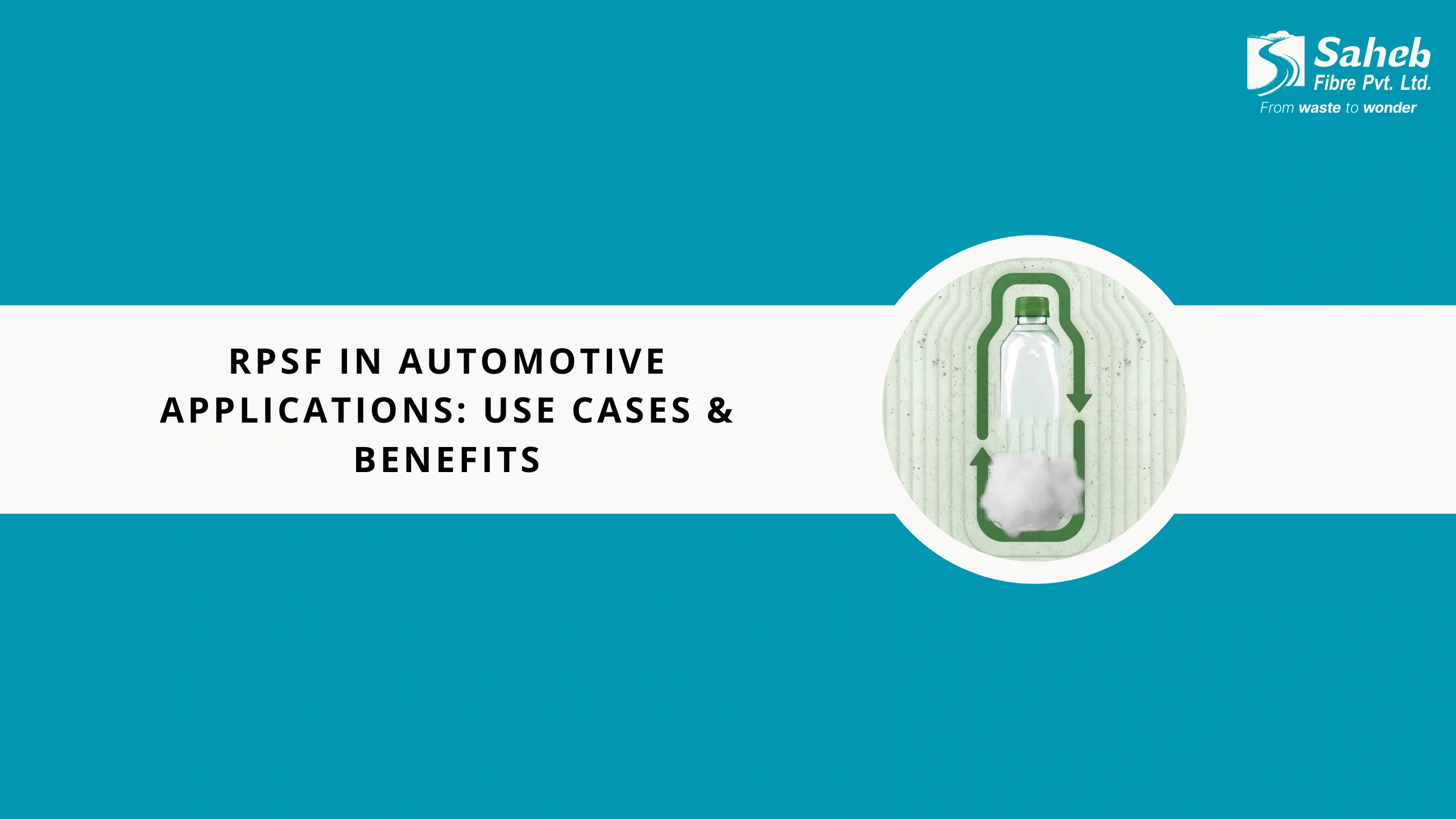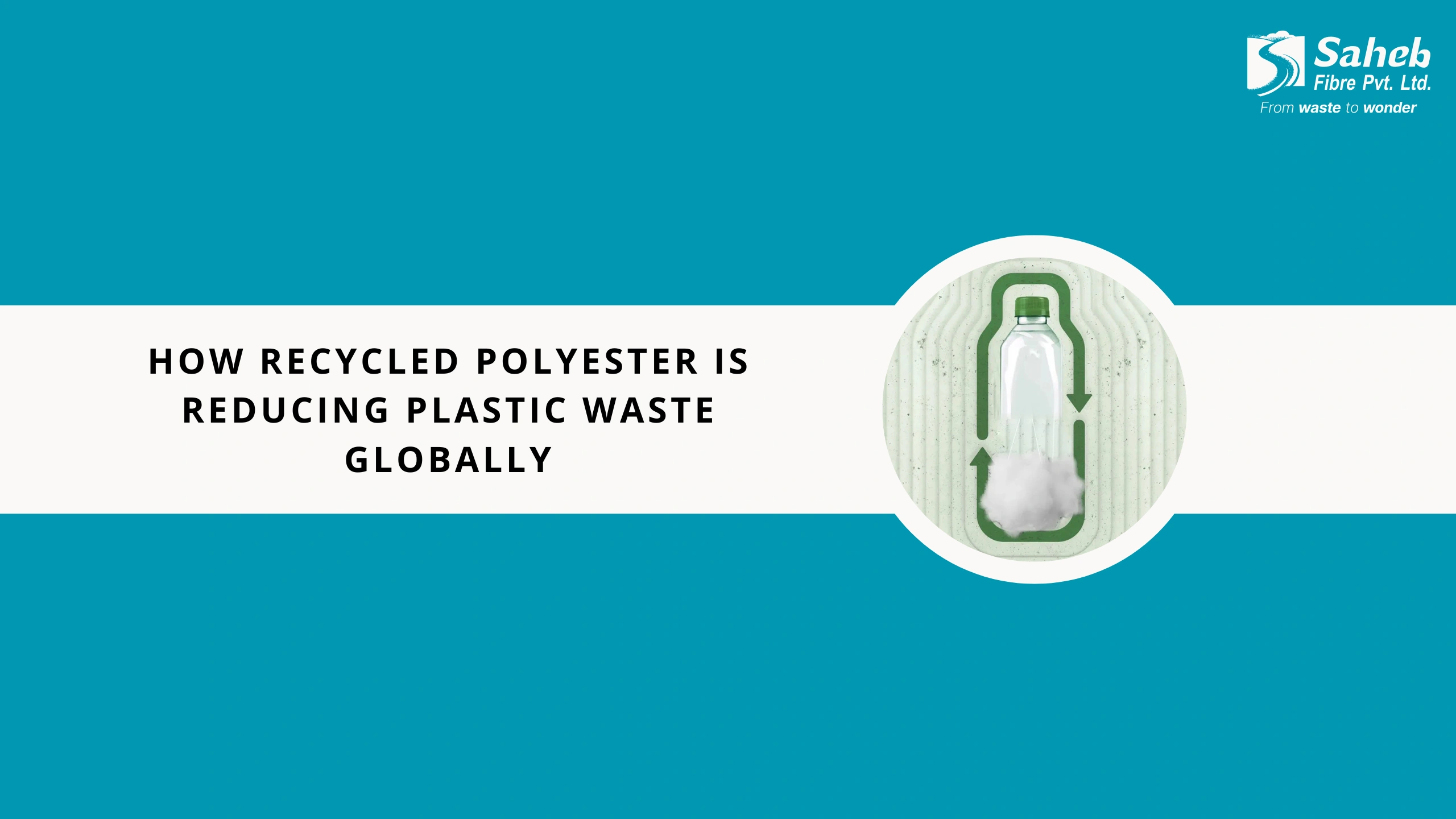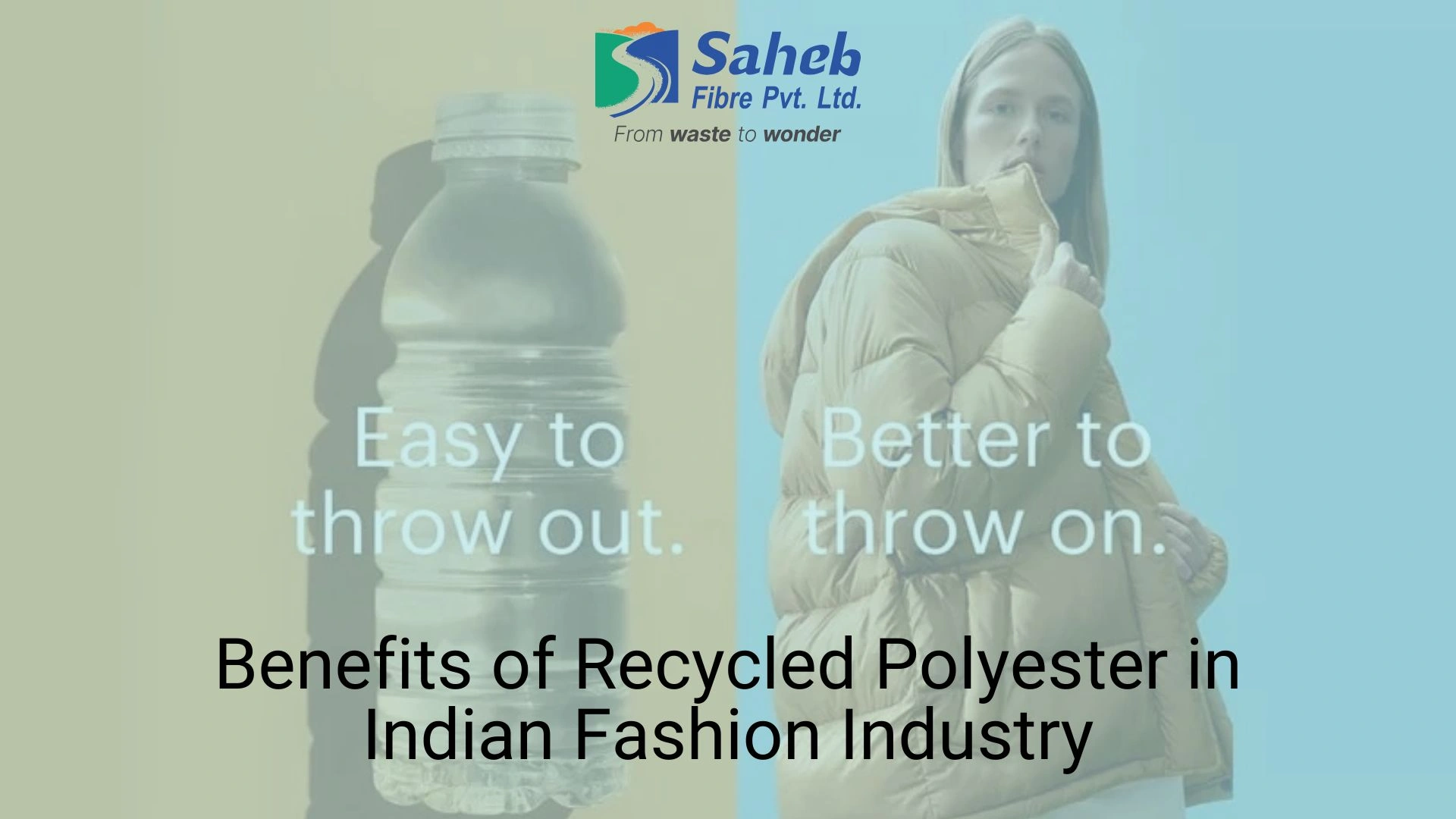
Fashion industry in India has started undergoing a sustainability revolution with recycled polyester staple fiber (rPET) and recycled polyester staple fiber (RPSF) being the pioneers of the revolution.These sustainable fibers, made out of post-consumer PET bottles, are changing the face of textile production and establishing new levels of environmental stewardship, performance, and creativity.
What Is a Recycled Polyester?
Recycled polyester (also referred to as rPET) is produced through the activities of collecting and processing post consumer plastics like PET bottles. They are washed, grated, melted and spun into fibre, into which they are spun into yarn and made into recycled plastic fabric cloth and other polyester textile fibres.
It is an eco-friendly process that diverts plastic waste in landfills and oceans and converts it into superior materials used in the clothing, interior, and technical fabric industries.
The Manufacturing Process: From PET Bottle to Polyester Fibre
-
The Manufacturing Process: PET Bottle to polyester fibre
-
Collection & Sorting: Utilized PET bottles are collected and sorted.
-
Cleaning/Shredding: Bottles are cleaned and shredded to flakes.
-
Melting-Extrusion: The flakes are made into molten and extruded into recycled polyester fiber.
-
Spinning and Dyeing: The yarn is spun and usually dyed using eco-friendly processes to reduce this environmental impact.
-
Textile Fabric Production: The yarn is woven or knitted to form a versatile textile fabric that can be utilized in fashion, home furnishing and others.
Key Benefits of Recycled Polyester in Indian Fashion
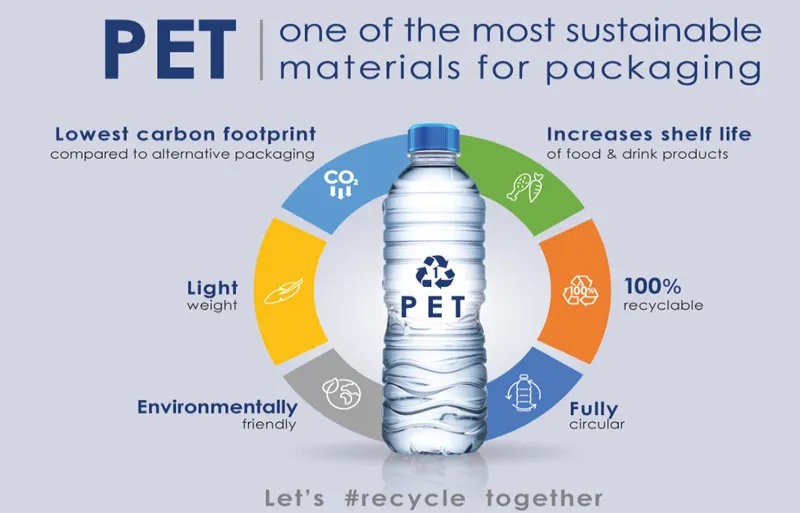
1.Environmental Sustainability
-
Less wastage of plastic: Indian companies using PET waste as a raw material to produce recycled polyester fiber, eliminate a significant amount of plastic waste that contaminates land and water ecosystems.
-
Reduced Carbon Footprint: The recycled polyester fabric uses up to 75% less energy and produces a reduced volume of greenhouse gases as versus the virgin polyester.
-
Conserves Resources: Reuse plastics that already exist and hence reduces fossil fuel dependency, saves on the use of water and prevents the extraction of raw materials.
2. Performance and Versatility
-
Durability & Strength: Recycled polyester staple fiber has superior tensile strength that makes it suitable in the apparel industry especially when producing clothes, home furnishing, and cars.
-
Color Retention: The color retention ability of rPET fabric means methods are used to generate bright and durable colors such as spun-dyeing.
-
Moisture and Stain: Polyester fabric composed of recycled material resists moisture, stain and shrinking - ideal in the Indian weather conditions.
3. Economic Advantages
-
Cost-Effective: The process of recycling polyester textile reduces the cost of raw materials and energy during the production process hence enabling low-cost production without affecting the quality of the product.
-
Encourages Circular Economy: Use of recycled polyester fabric will support the circular economy approach, which forms part of the objectives of India on sustainability.
4. Certifications and Quality Assurance
-
Global Standard Compliance: Major Indian recycled polyester producers including Saheb Fibre do obtain certifications like GRS (Global Recycled Standard) and hence are traceable, good quality and environmentally friendly.
-
Uniform Quality Rigorous: quality control guarantees high standards of tenacity, elongation and color consistency in recycled polyester staple fiber, which has made it a trusted source of top-end fabrics.
Applications in the Indian Fashion Industry
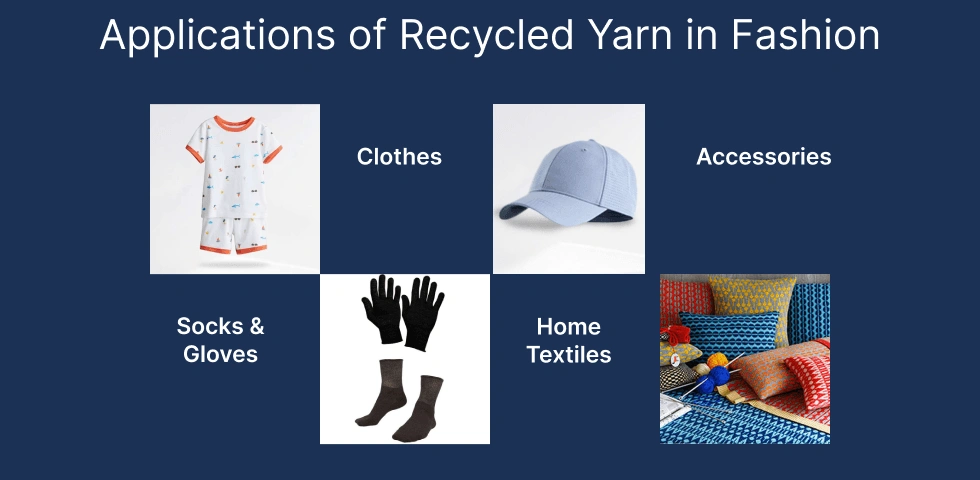
-
Apparel Industry: Recycled polyester fabric is also commonly used in the apparel industry, including athleisure and formal clothing, because it is soft, breathable, and durable.
-
Home Textiles: It is strong and washable and can be used as curtains, cushions, beddings and on carpets.
-
Automotive Interiors: Recycled polyester staple fiber can be used in seats cover and lining, which would be both comfortable and durable.
-
Technical & Industrial Textiles: Can be used in the geotextiles, filtration systems and also insulation material because of its strong performance.
Why Indian Fashion Brands Are Embracing Recycled Polyester
-
Consumers Preference: Increasing numbers of Indian and global consumers are seeking environmentally responsibly produced clothing in a sustainable fabric such as recycled polyester.
-
Support through Policy: Green manufacturing activities and use of recycled fiber are encouraged due to the government initiatives.
-
Local Expertise: Local hubs have already specialised in textile recycling in Indian industries, which boasts of innovative solutions in expansion of recycled textile manufacturing.
rPET Products for Fashion Industry
Conclusion
Recycled polyester is a feasible and sustainable alternative in the development of the Indian fashion industry.It minimizes plastic waste products, contributes to circular production, and provides valuable, multifunctional fabrics, which can be used in an incredibly broad scope of applications. Using recycled polyester staple fiber and repeated polyester fabric in their fabric chains is not only helping the Indian brands cut on their environmental footprint but also keeping them ahead in a market that is getting increasingly more towards conscious consumption.
By choosing products made from RPSF, Colored RPSF, rPET flakes manufacturers like Saheb Fibre, we take a powerful step toward a greener, more responsible future for Indian fashion industry and other indusry.
The future of fashion is green, and recycled polyester is leading the way.
